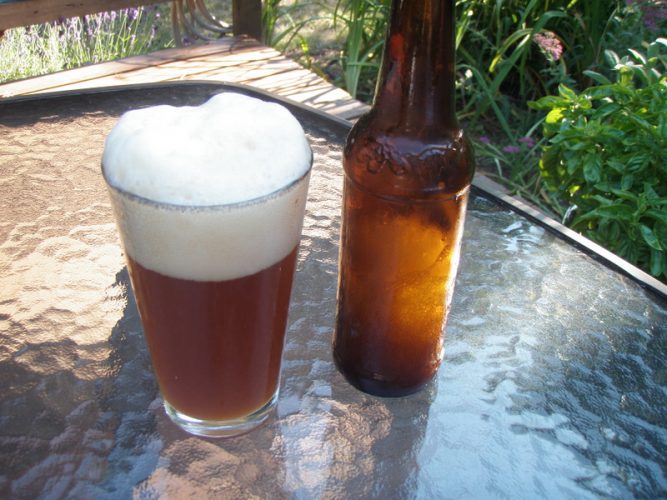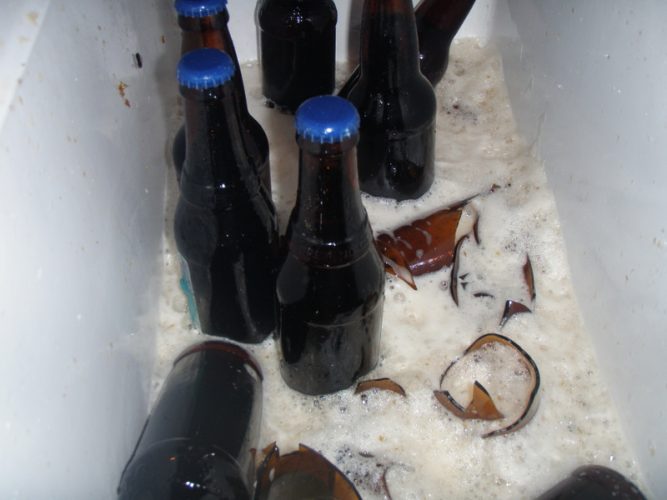Ginger Saison without Ginger

Today we wanted to do a Saison–something substantially different from The Hopfather, but still light enough for easy summer drinking.
We followed the Ginger Saison recipe from Sam Calagione’s Extreme Brewing, but did not include the ginger because we’ve had some less-than-pleasant results when using ginger in the past. Two recipes that included ginger–the Gingerbread Brown and a Fruitcake beer–were both overwhelmingly gingery. This time we just wanted a nice easy-to-drink Saison.
Results
Overview
- Starting gravity (actual):
- 1.073 (no ginger)
- Starting gravity (expected):
- 1.072 (with ginger)
- Final gravity (actual):
- 1.032 (no ginger)
- Final gravity (expected):
- 1.015 (with ginger)
Recipe
Malt
- 6.6 lbs light liquid malt extract
- 1 lb light dry malt extract
Hops
- 0.5 oz Hallertau hop pellets
- 10 minutes
- 0.5 oz Syrian Golding hop pellets
- 5 minutes
Yeast
- Wyeast 3724 Belgian Saison — careful!
Other
- 1 lb Belgian candi sugar
- 15 minutes
2 oz crystallized ginger
Brewing Notes
Timeline
- Brewed
- June 10, 2011
- Purée and transfer
- June 16, 2011
- Bottled
- June 23, 2011 (?)
- Tasted
- July 28, 2011
- Low wort volume
We started our boil with roughly 5 gallons (instead of the 4.5 in the recipe) and had one boil-over. We added an extra 1/2-3/4 gallon of water at the end of the boil. After transferring to the carboy we were still at only 4.5 gallons so we topped off to just under 5. Unfortunately, we measured the gravity before this final top-off. - High gravity
Even adding all of that water, the measured gravity when bottling was still very high (1.032 instead of 1.015). We later learned that this was likely because the yeast we used (Wyeast 3724 Belgian Saison) has a high activation temperature. From the Wyeast website:This strain is notorious for a rapid and vigorous start to fermentation, only to stick around 1.035 S.G. Fermentation will finish, given time and warm temperatures. Warm fermentation temperatures, at least 90°F (32°C), or the use of a secondary strain can accelerate attenuation.
- Bottle bombs!
So it seems as though we didn’t let it ferment long enough and the yeast didn’t get very much work done. That is, until the weather got warmer after the beer was all bottled… Roughly half of the batch exploded one morning within a period of 5 minutes. I guess the lesson is to always let your beer ferment completely and know your yeast.
